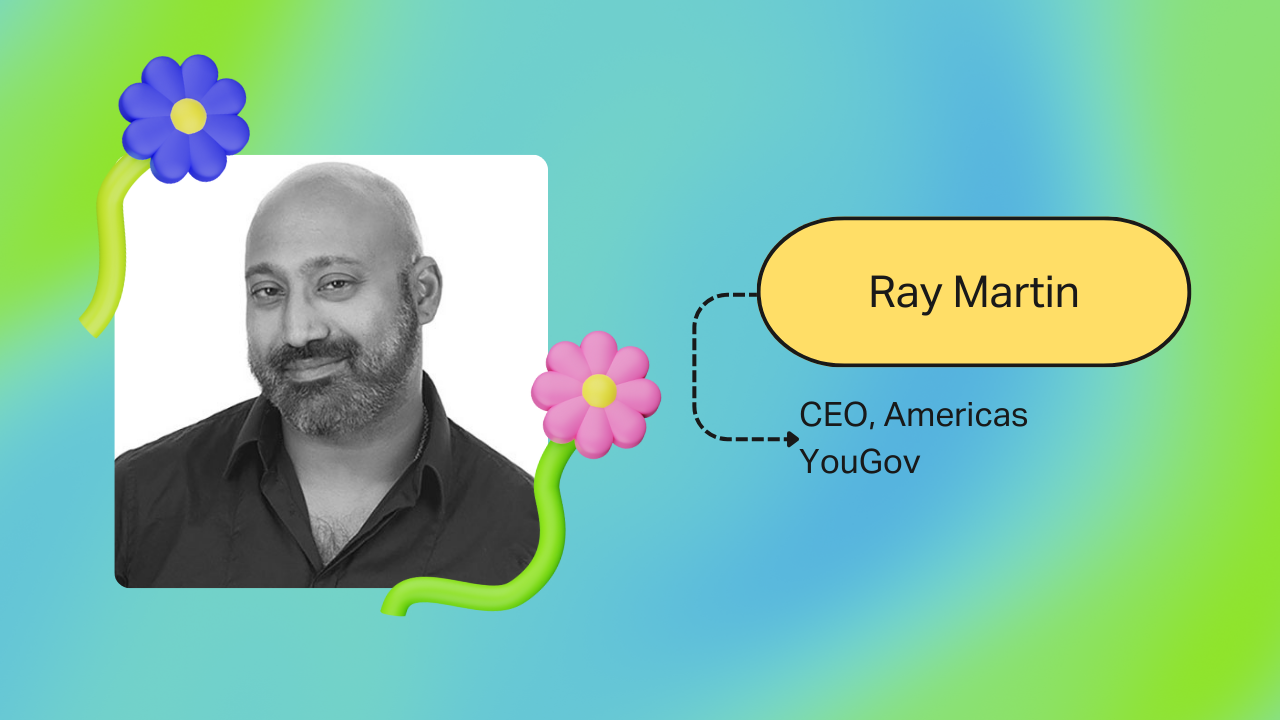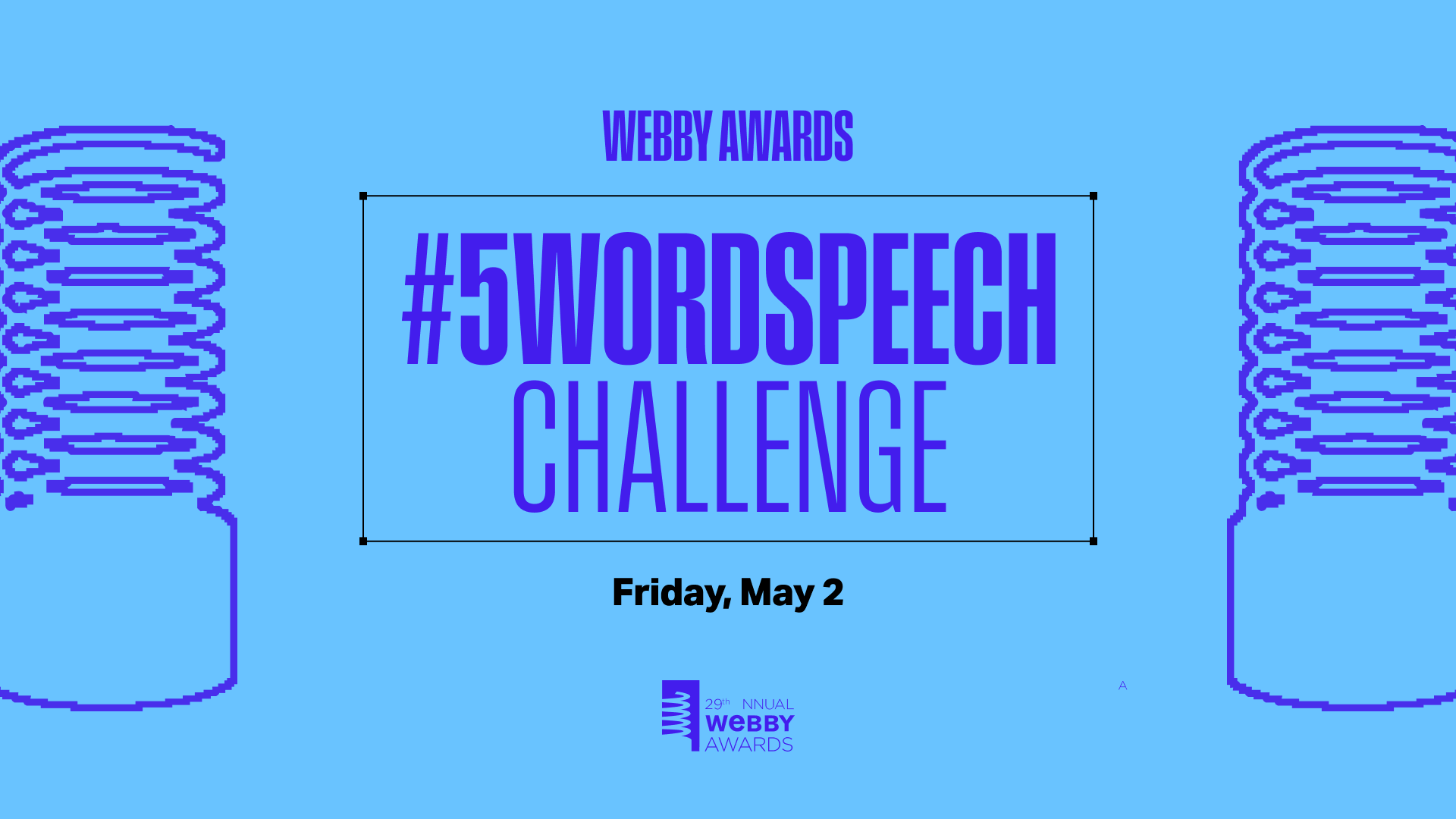This year, AI was everywhere – it dominated pop culture and turned the workplace on its head. As more companies and individuals rush to implement AI into their daily lives, the technology has elevated from another tech trend, poised to fade in a few months, to the status of “the new way we work.”
As AI continues to innovate at breakneck speed, there is still a stark gap in how American consumers feel about using AI. We explored this tension in the 2024 Webby Awards Trend Report: The Race to Outpace, in partnership with Canva and YouGov.
In partnership with YouGov, we conducted a survey over 2,000 U.S. consumers to find out how they feel about AI, if they use it, and how they think it may impact their future. We found that there is still a stark gap between who is mastering AI and who hasn’t started the race. What’s clear is that brands will need a clear view on how their audience and stakeholders feel about AI, to inform the products they build. To dive deeper into what AI means for consumers and brands, we spoke with Ray Martin, CEO, Americas at YouGov.
Based on YouGov’s research, how are consumers’ attitudes towards AI shifting?
We’ve been looking closely at shifting attitudes towards AI in the past year, following the spike in interest generated by ChatGPT. Interestingly, we’re seeing only a modest increase in concern about the pace of AI technology among the broader American public. However, there is a sharp divergence in views across age, education, employment status, political affiliation and experience actually using AI tools.
For example:
- People who don’t currently use AI tools are more than twice as likely to think AI is a major threat to humanity
- Americans with a four-year degree are 1.5x more likely to believe AI will eventually be more intelligent than high school graduates
- 28% of Republicans think AI is likely to put them out of a job, compared to 37% of Democrats
- 48% of people who are currently unemployed think AI research should be paused, compared to just 36% of those who currently have a job
Have you seen a noticeable change in what US consumers’ associate with AI technology?
The research we conducted for this report showed that Americans who said they didn’t use AI held a fairly narrow view of what AI tools encompassed. For example, they did not think tools like Apple and Google Maps (70% AI users vs 22% non-AI users), Google Search (83% vs 37%), Grammarly (51% vs 20%), Face ID (69% vs 37%) and E-Payments (40% vs 13%) utilize AI.
It seems clear that Americans are comfortable with this type of “behind-the-scenes AI,” and are more likely to take issue with Generative AI.
“ Looking exclusively at US-based ChatGPT users, the three biggest reasons cited for using AI are for research and discovery (62%), entertainment (55%), and creativity (52%).”
This year, many of consumers’ concerns about AI have been on display. Based on your polling, what potential uses of AI are US consumers’ actually excited about?
Looking exclusively at US-based ChatGPT users, the three biggest reasons cited for using AI are for research and discovery (62%), entertainment (55%), and creativity (52%).
When further probed, it’s apparent that this group of early adopters are using AI throughout their workflow. Nearly a quarter say they are using AI for generating new ideas, while 17% say they are using it to streamline workflow and 15% to increase output.
The use cases for AI differ significantly across industries. We’re seeing an increasing number of clients reaching out to explore AI use cases and attitudes within industries like healthcare, retail, tech, finance and manufacturing.
As AI-driven technology becomes more advanced, which tasks or outputs do consumers want AI to tackle?
69% of Americans who say they are knowledgeable about AI believe the technology can improve our lives. Among this audience, Education, Sustainability and Public Health rise to the top of issues that they want AI to tackle. This sentiment will likely evolve as new technology enters the market and AI education continues to increase.
What advice would you have for brands that are looking to create better consumer products and experiences with AI?
Americans have different comfort levels with AI. It’s critical that brands understand how all their different stakeholders think about the evolving technology, so they can create products and experiences that add value and don’t raise anxieties. Market research will play a key role in informing brands’ decision-making in the deployment of AI, from product development to optimizing user experience.AI has enormous potential to transform virtually every industry, but it will be critical that the human decision-makers leverage data and emotional intelligence in the path forward.
Download the 2024 Webby Trend Report for a deeper breakdown of AI and to explore our curated list of recommended AI tools that you can elevate your work with today!
Learn more about YouGov.



 Twitter
Twitter


